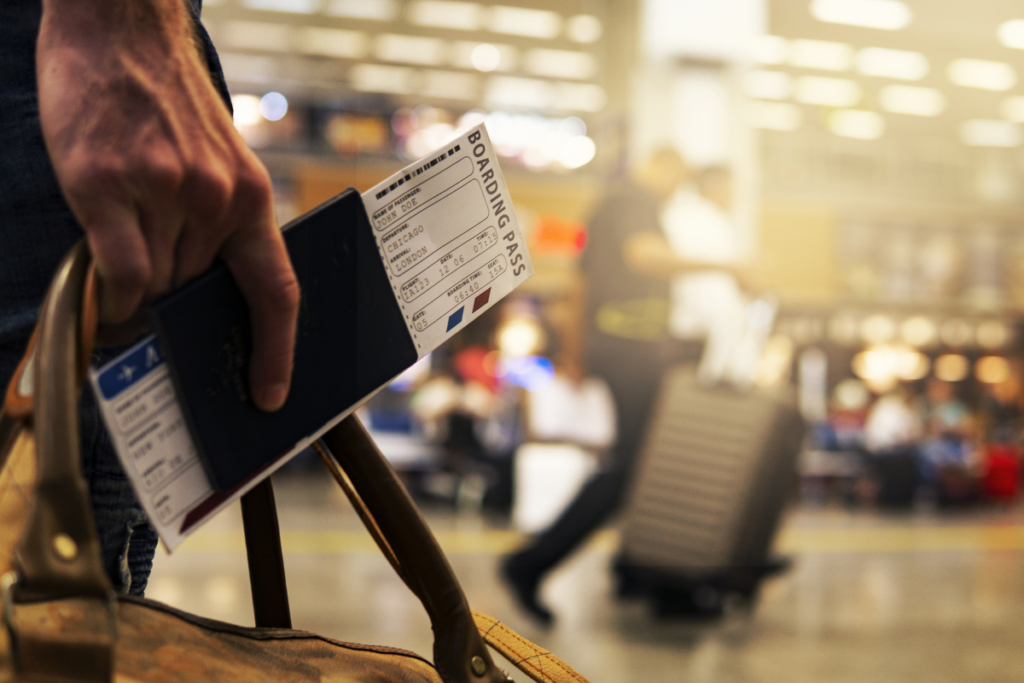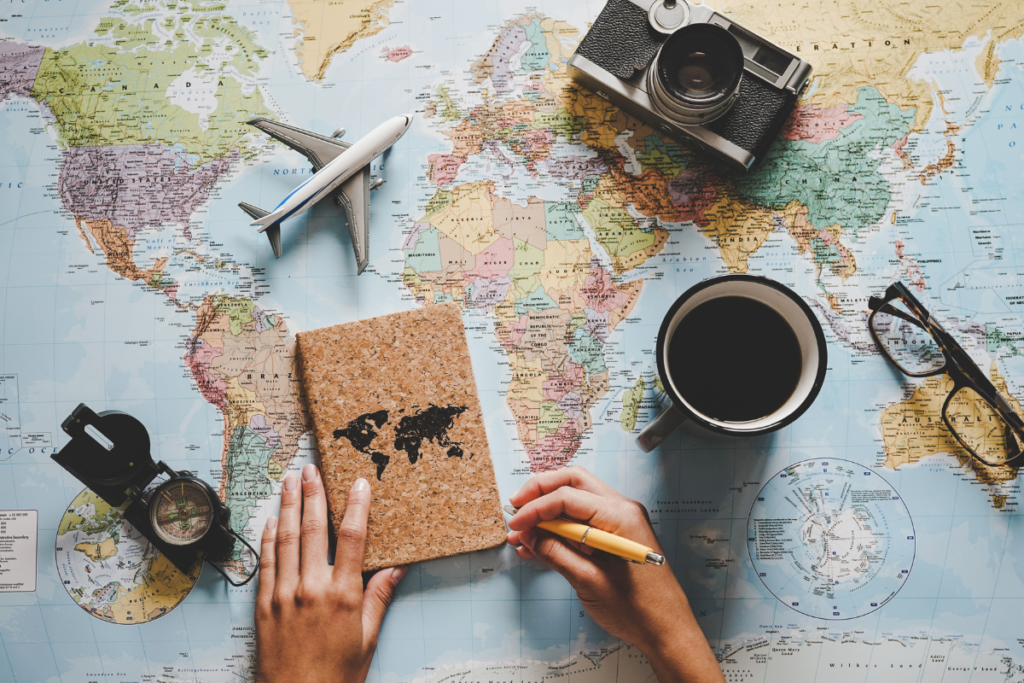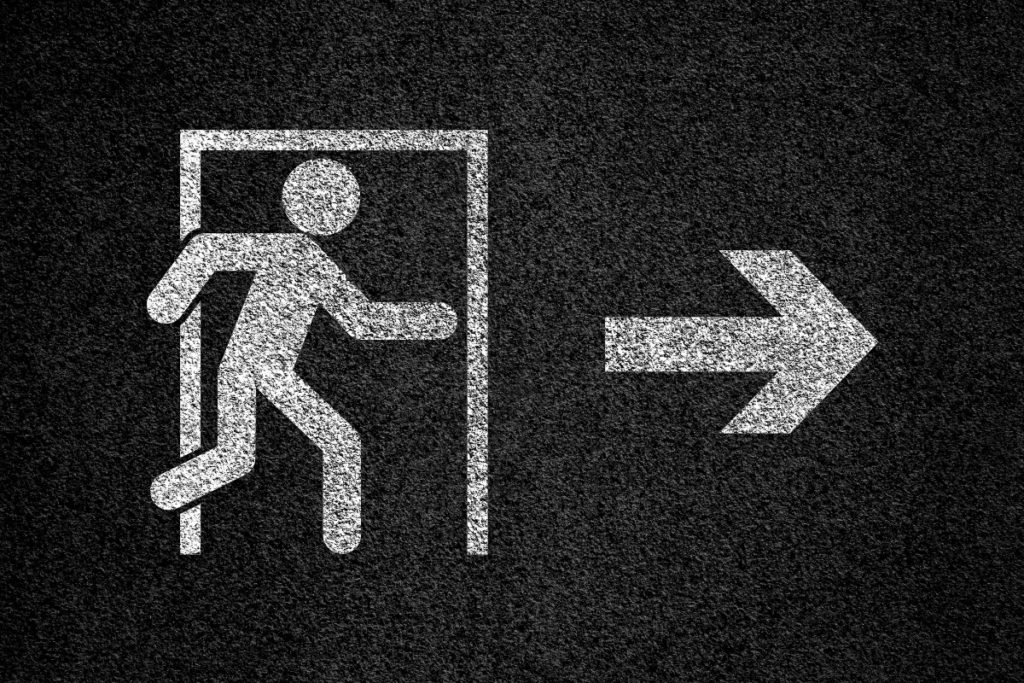Traveling long-term is a daunting task. No matter how much you prepare, something often feels missing. Today’s post is to help you get ready for your digital nomad journey. Below is the checklist to go through before you board your flight.
1. Visas and Documentation

- Passport: Obtaining a new passport while abroad can be stressful. Ensure your passport is valid for at least a year. Additionally, having several copies of your passport photos can be handy.
- Visas: Check if you need a visa for your destination. If not, check the maximum number of days you can stay and mark the date on your calendar.
- Health Documentation (optional): If you have a chronic disease, it’s especially important to carry medical records, prescriptions, and vaccination certificates if required. Research healthcare options at your destination.
- Legal Compliance (optional): Important if you are employed. Inform your employer before you travel. Working overseas can raise concerns about taxation and legal issues. Consult with your company to confirm it is okay for you to work remotely in a foreign country.
2. Travel Insurance

- Travel Insurance: Purchase comprehensive travel insurance that covers health, theft, and travel cancellations. Emergency medical insurance is crucial. For general health concerns, consider returning to your home country for proper care. Ensure the policy includes baggage loss and theft insurance, and trip cancellation insurance. Read the policy thoroughly and carry a printed copy with you.
3. Financial Planning

- Savings: Especially in a foreign country, avoid living paycheck-to-paycheck. Having a financial cushion is crucial to cover living expenses, emergencies, and travel costs for at least 3 to 6 months.
- Income Sources: Secure income streams or have a concrete plan on how to make money, whether through remote jobs, freelancing, or passive income.
- Budgeting: Create a detailed budget for living costs, travel, insurance, and unexpected expenses.
- Banking: Set up online banking and ensure you can access it in a foreign country. Make sure your bank cards are accepted internationally. Consider a backup card and an account that doesn’t charge foreign transaction fees.
- Tax Planning: Understand your tax obligations in your home country and any countries you plan to stay in for extended periods.
4. Work Preparation

- Reliable Equipment: Invest in high-quality equipment, including a laptop, smartphone, and essential tech gear, plus necessary accessories like chargers, adapters, and a power bank.
- Tool Availability: Ensure your main working tools (especially cloud services) are available in the destination country.
- Use VPN: Use a VPN to enhance digital security and bypass any IT service restrictions in certain countries. Download and test the VPN before arriving at the destination.
- Backup Solutions: Have a backup plan in case of accidents. Use both physical storage (laptop and portable hard drives) and cloud storage to prevent data loss.
- Working Space: Research coworking spaces or cafes with good internet connections. Even if you prefer working at home, there’s no guarantee your accommodation will be optimal for working all day. Consider noise-cancelling headphones for better focus.
5. Internet Connectivity

- Local SIM Cards/Plans: Research mobile plans or international SIM cards for affordable data and calls. If it’s cheaper in your home country, buy it there.
- Portable Wi-Fi: Consider portable Wi-Fi devices if you spend a lot of time on the move or in remote areas.
6. Travel Planning

- Research: Conduct neighborhood research to choose accommodation. Avoid very touristy areas for long-term stays. Focus more on livability.
- Accommodation: Book initial accommodation through platforms like Airbnb, Booking.com, or local rental services. Research areas for long-term stays based on internet quality, neighborhood safety, and overall pleasantness.
- Money Exchange: For non-major currencies, exchange a small amount at home for the first day and bring USD or other major currencies to exchange locally. Avoid airport exchange offices due to high costs.
- Transportation: Plan your transportation from the airport to your accommodation. Research transport card options beforehand to save your money.
- Local Apps: Research local alternatives to apps like Uber and PayPal, as some global servicies are not universally available. Even Google Maps does not work properly in some countries.
- Packing Essentials: Pack medications you regularly take, first-aid supplies, and any specialized items for your work. Consider bringing your pillow if you are not a quick sleeper.
7. Health Care

- Health Check-Up: Have a health check-up before you depart and ensure you have necessary vaccinations or medications. A dental check-up is also recommended. Having toothaches overseas is a nasty experience to deal with.
- Local Hospitals: In non-English speaking countries, locate a hospital where English is spoken. This information is usually available in online expat groups.
- Health and Fitness: Research local gyms, parks, or fitness classes. Plan for a balanced diet and regular exercise to maintain your health.
8. Exit Strategy

- Plan for Emergencies: Have an emergency fund and know how to get back home quickly if needed.
- Contingency Plans: Have backup plans for accommodation, finances, or transportation in case things don’t go as expected.
